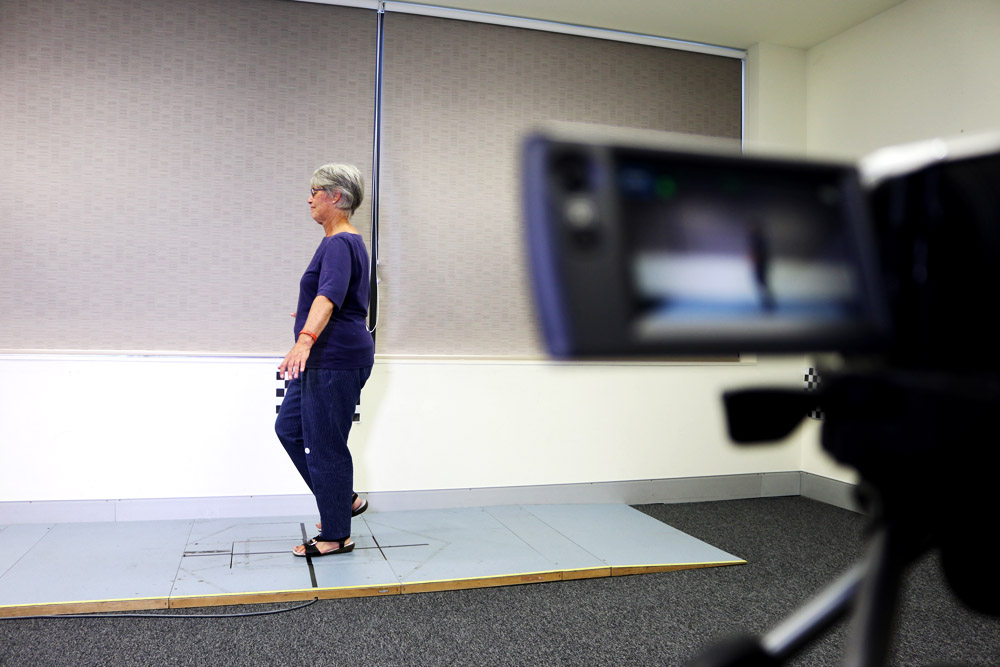Antony Perry
28 February 2017: Loss of balance is considered an inevitable consequence of ageing, but the power to anticipate a fall could soon rest in the hands of those most at risk - the elderly.
University of Canberra PhD student Hafsa Ismail is investigating alternative ways of monitoring a person's gait to better understand how people balance and walk as they age.
Using inexpensive video equipment, Ms Ismail is filming older people from different angles to compare their movement with the results of force-plate analysis.
She hopes to create a computer program or a smart phone app that could be used by older people to capture their walking. Over time, it would alert them or their carer to changes in the way they walk that might mean an increasing risk of suffering a fall.
Ms Ismail said preventing falls is the aim but making it easier for older people to know when they should seek professional advice from a general practitioner or a physiotherapist is also important.
“I’d like to see this system installed in aged care facilities, where people could be instantly assessed while walking to get their meals,” Ms Ismail said. “That way, their carers could be alerted when their walk deteriorates.”
Physiotherapists currently rely on expensive ‘force-plate’ technology, involving complex equipment, to gauge how people walk.
But Ms Ismail is hoping the development of an app will mean the cumbersome equipment is no longer necessary.
“I am currently combining the two methods – a traditional force-plate and the videos to compare the data and see the correlations that can be drawn to establish a ground truth,” Ms Ismail said.
“The research looks at the movement of participants’ legs, but also at how their torso moves or sways as they walk.
“I’m hoping that by comparing the data, we can spot changes in the video that relate to what the force-plate is detecting. Then we can begin to program computers to analyse these videos looking for similar changes.”
The project is being supervised by University of Canberra professor of affective computing Roland Goecke, professor of physiotherapy Gordon Waddington and the CSIRO’s Data61 group.
To advance to the next stage of her study, Ms Ismail is looking for Canberrans aged 60 years and over to attend a session and spend 10 minutes walking and balancing in a short series of three poses for the cameras as she compiles individual movement data.
The quick test would then be repeated three months later to determine if any changes have occurred in their gait.
People interested in participating in the research can contact Ms Ismail at Hafsa.Ismail@canberra.edu.au.



